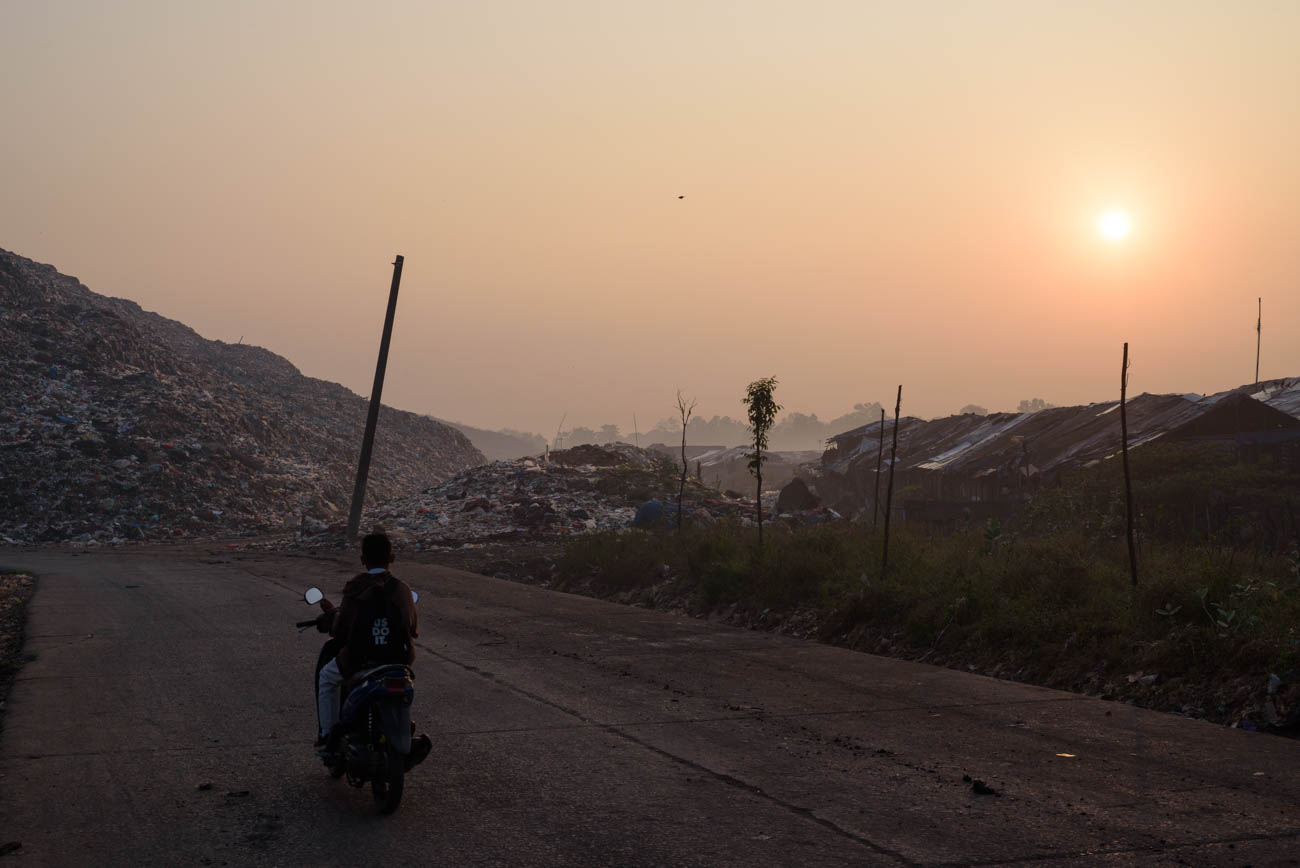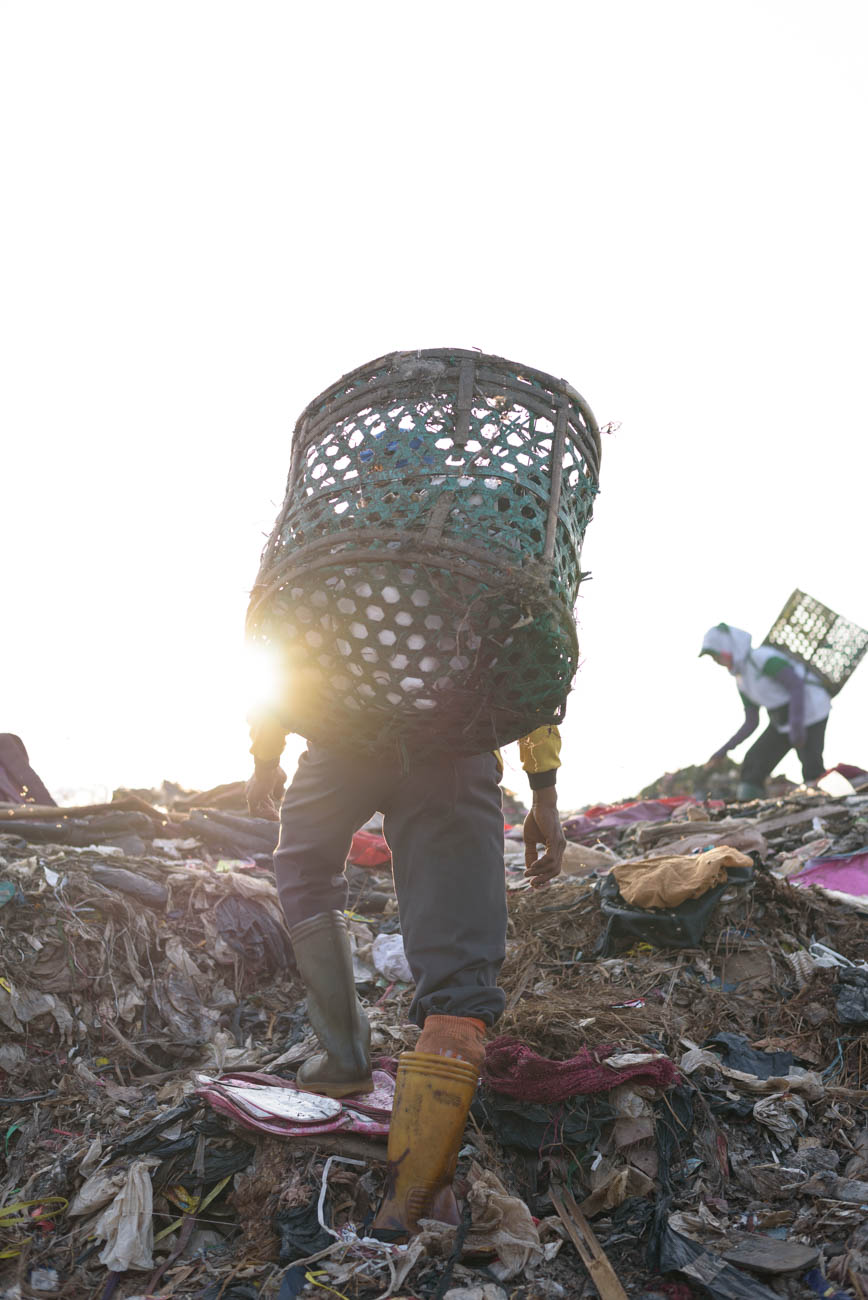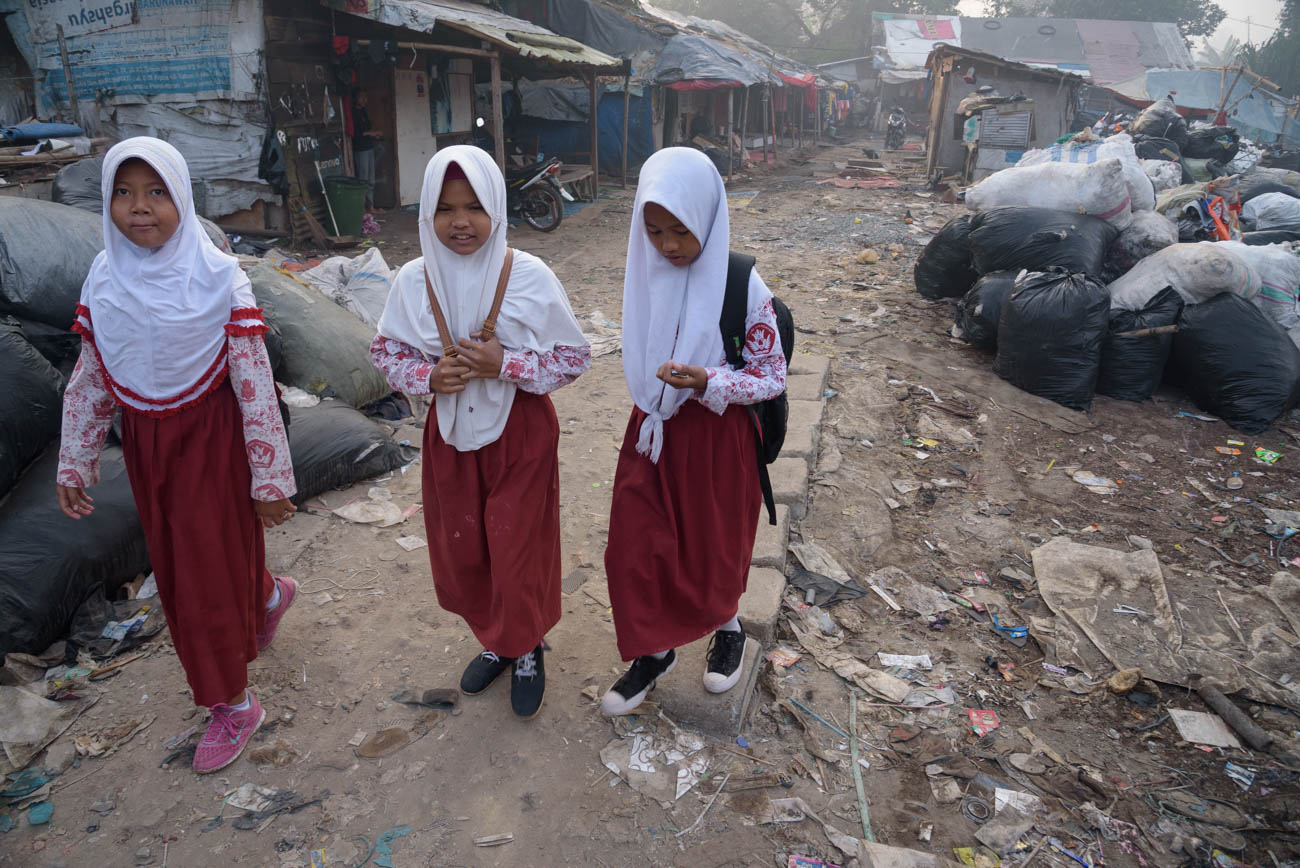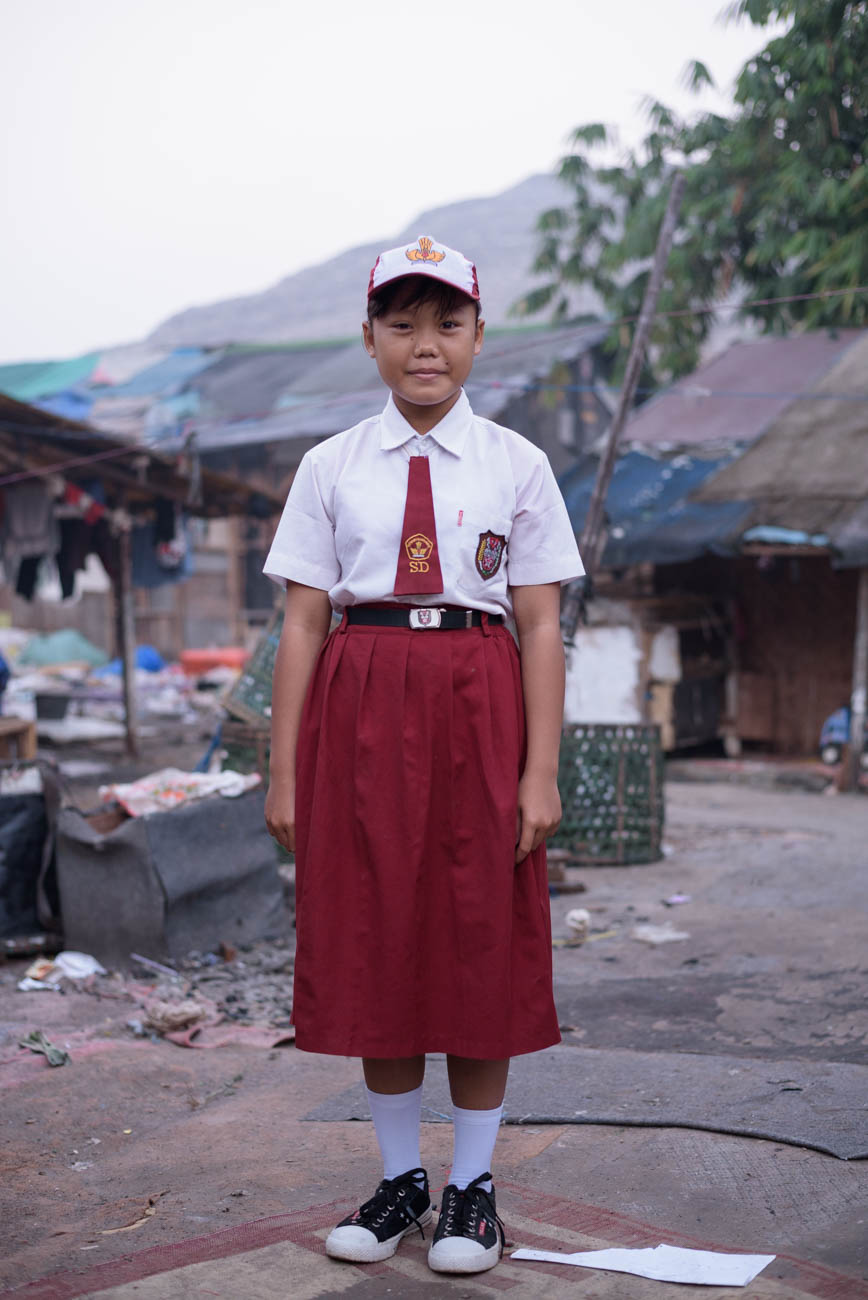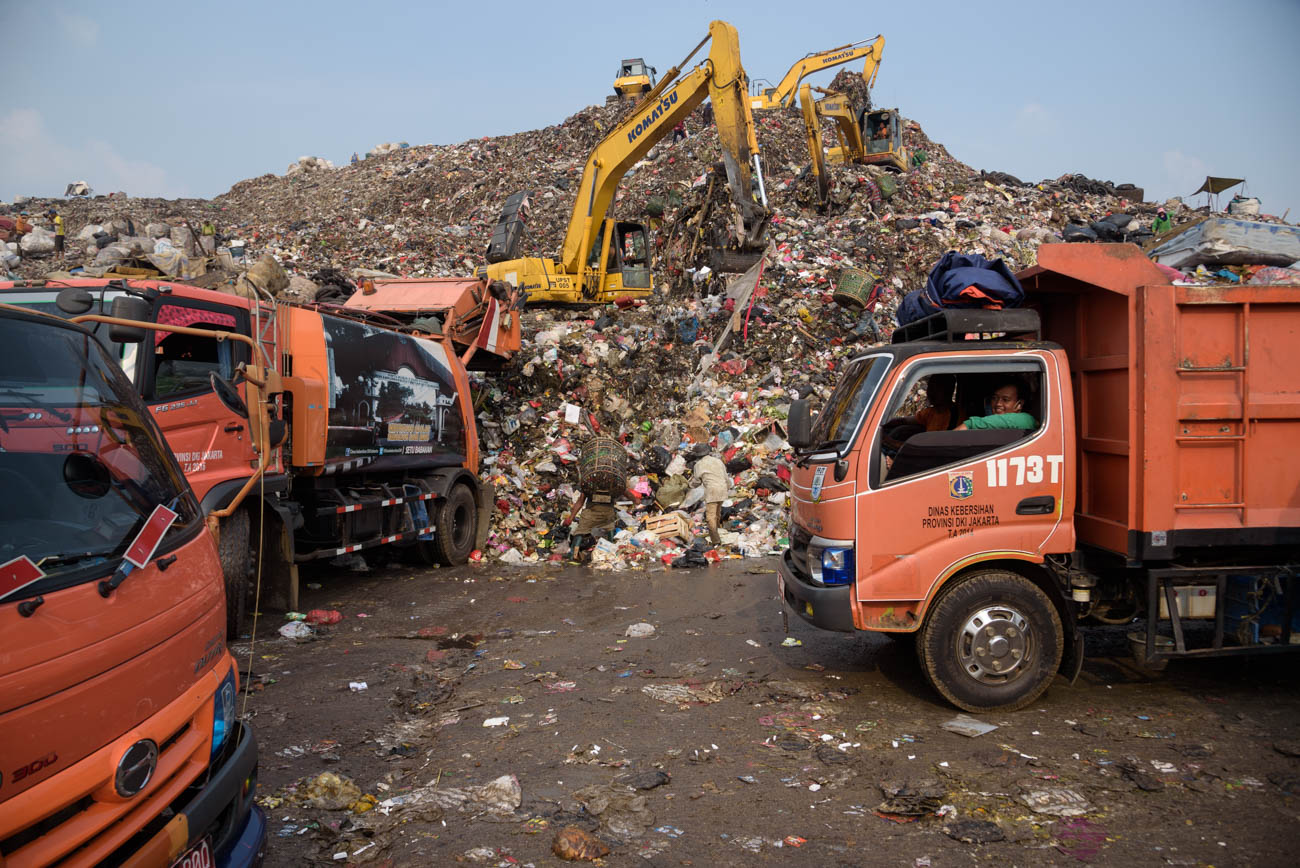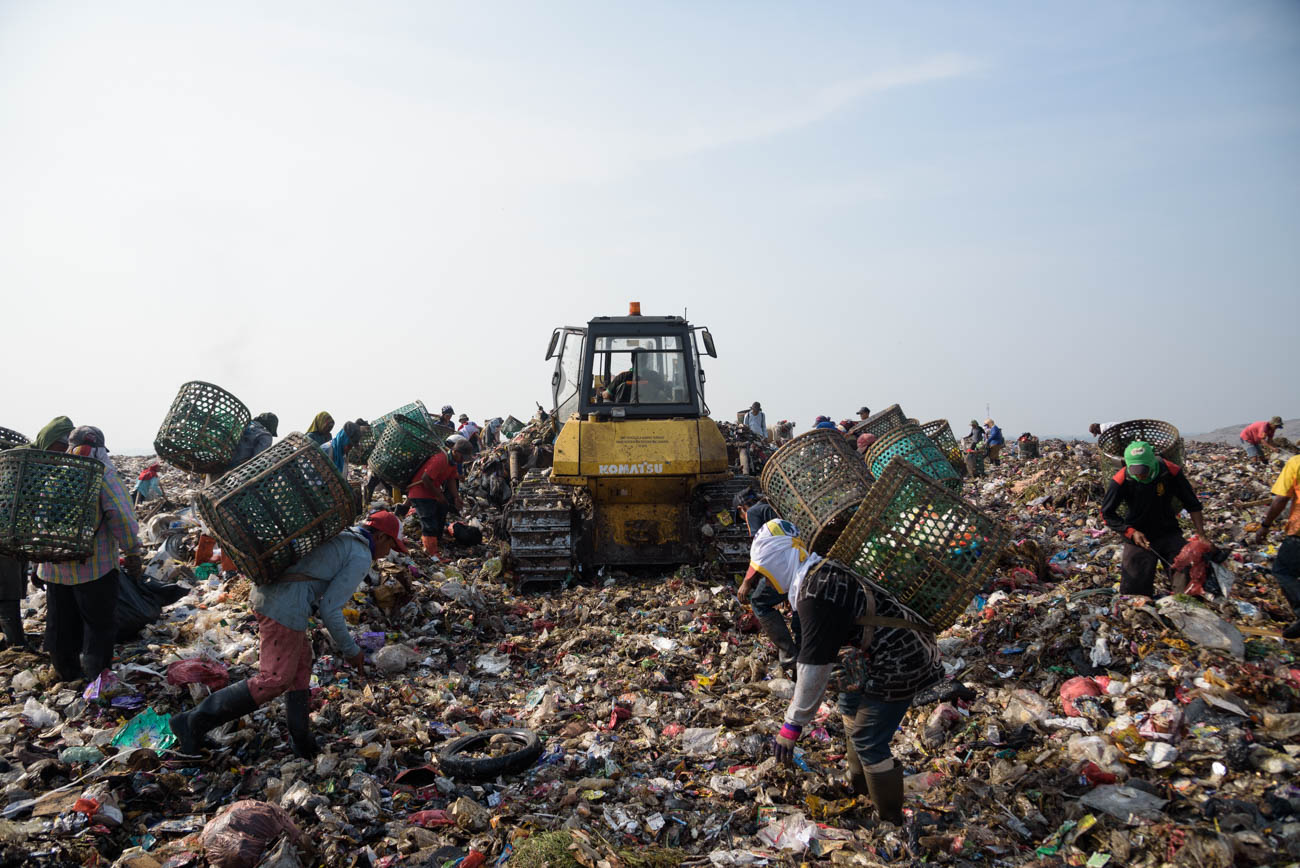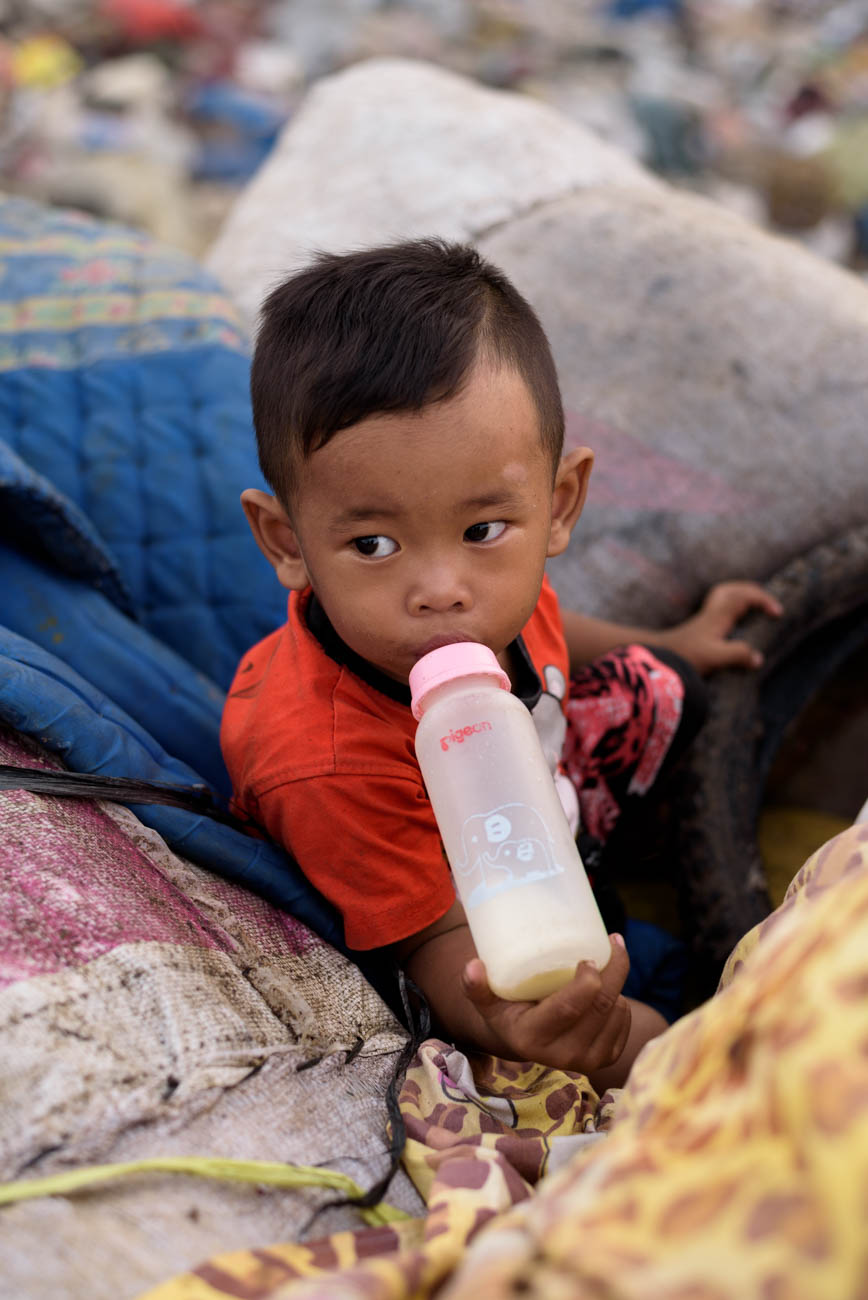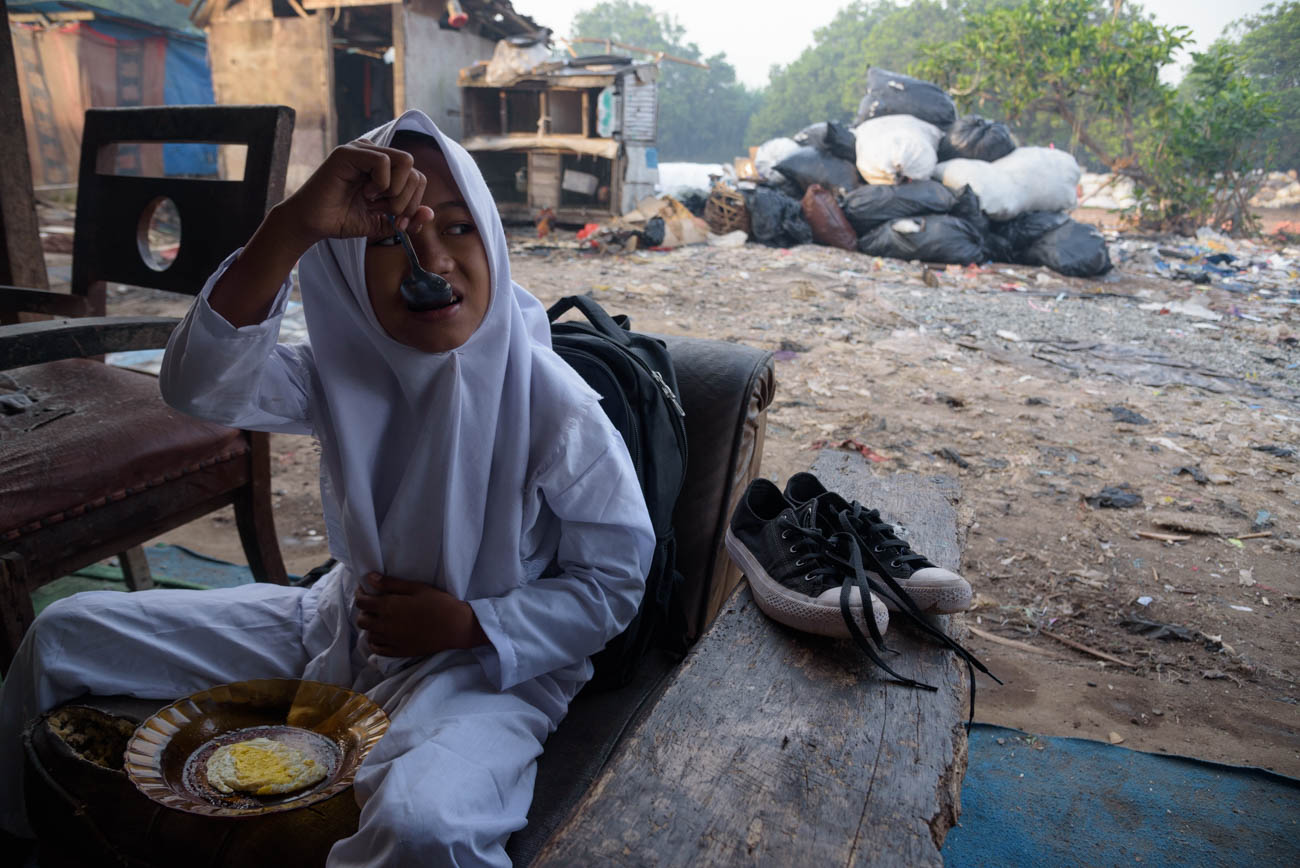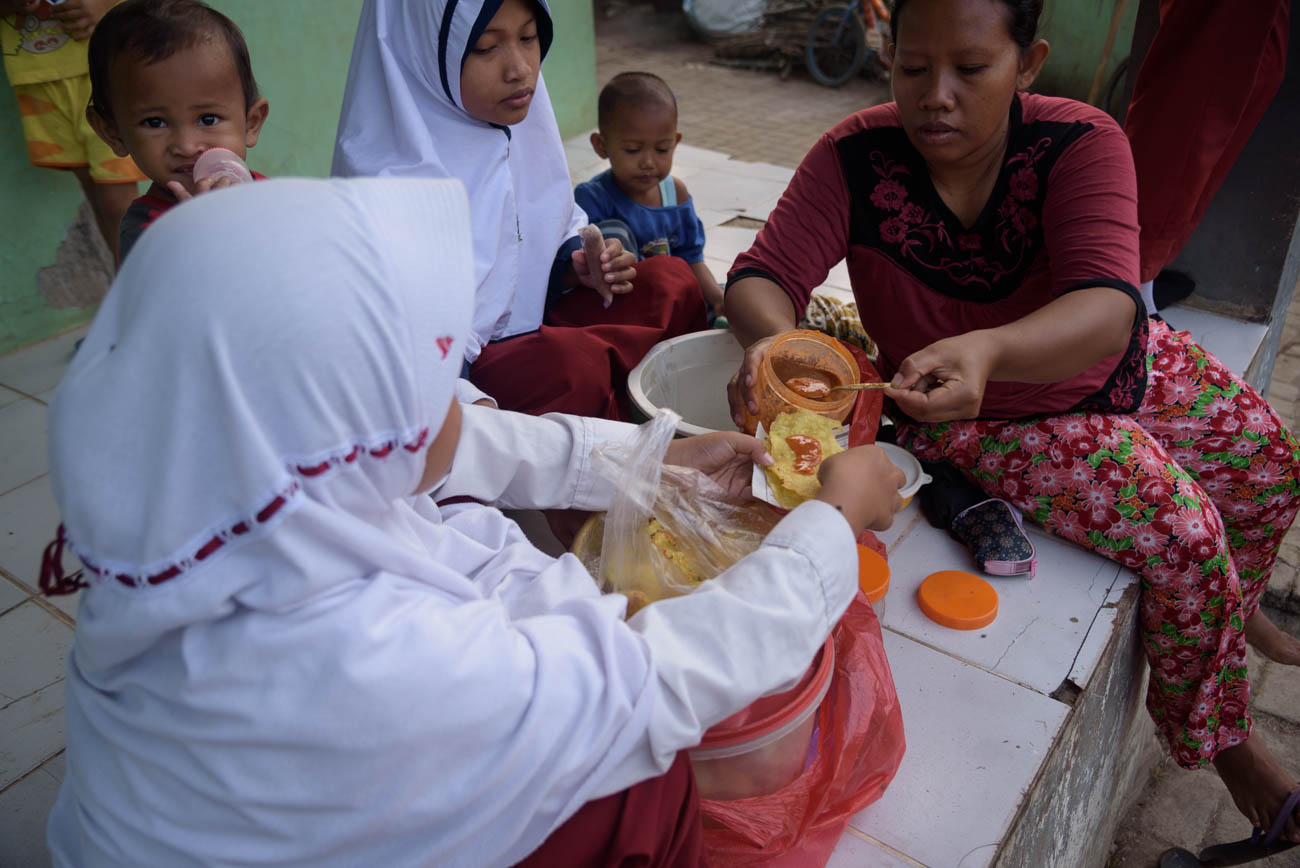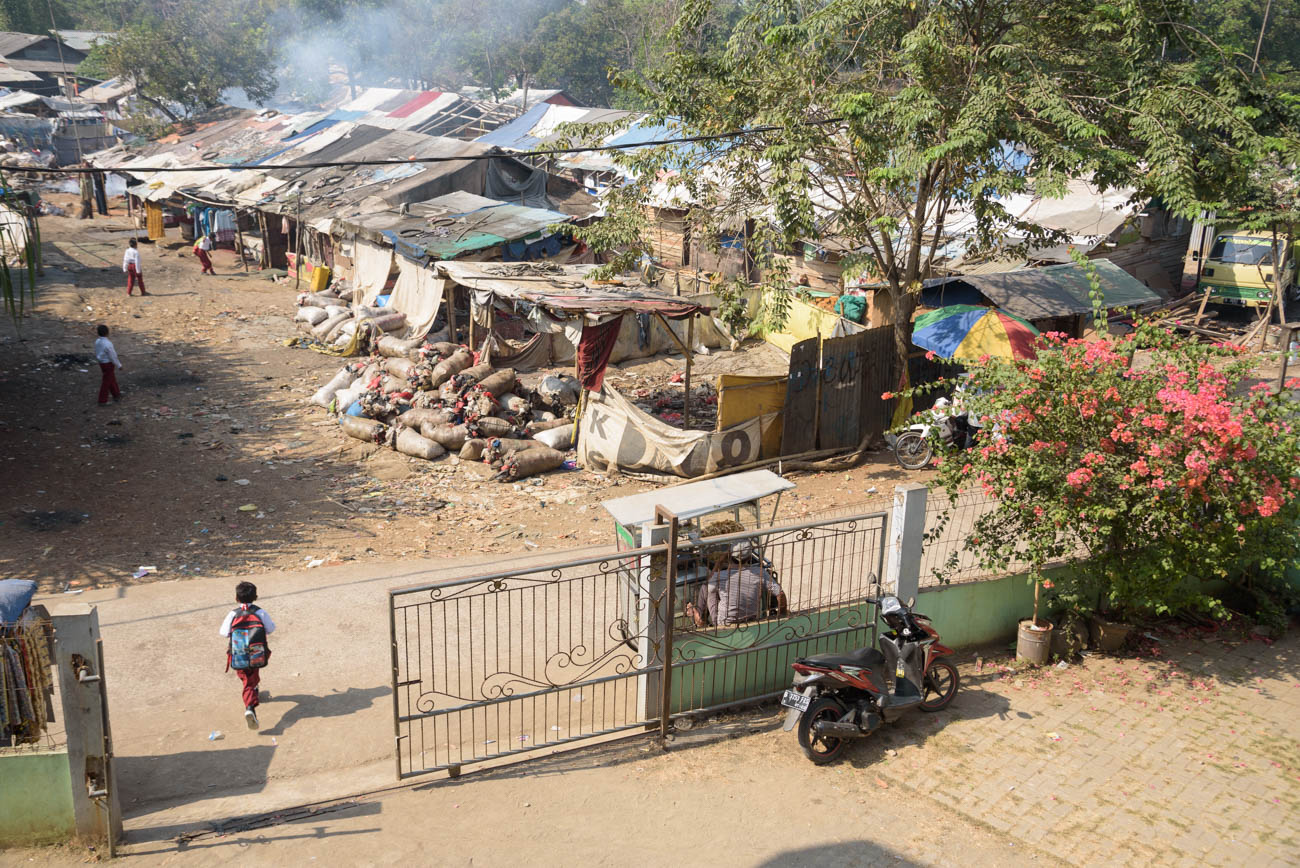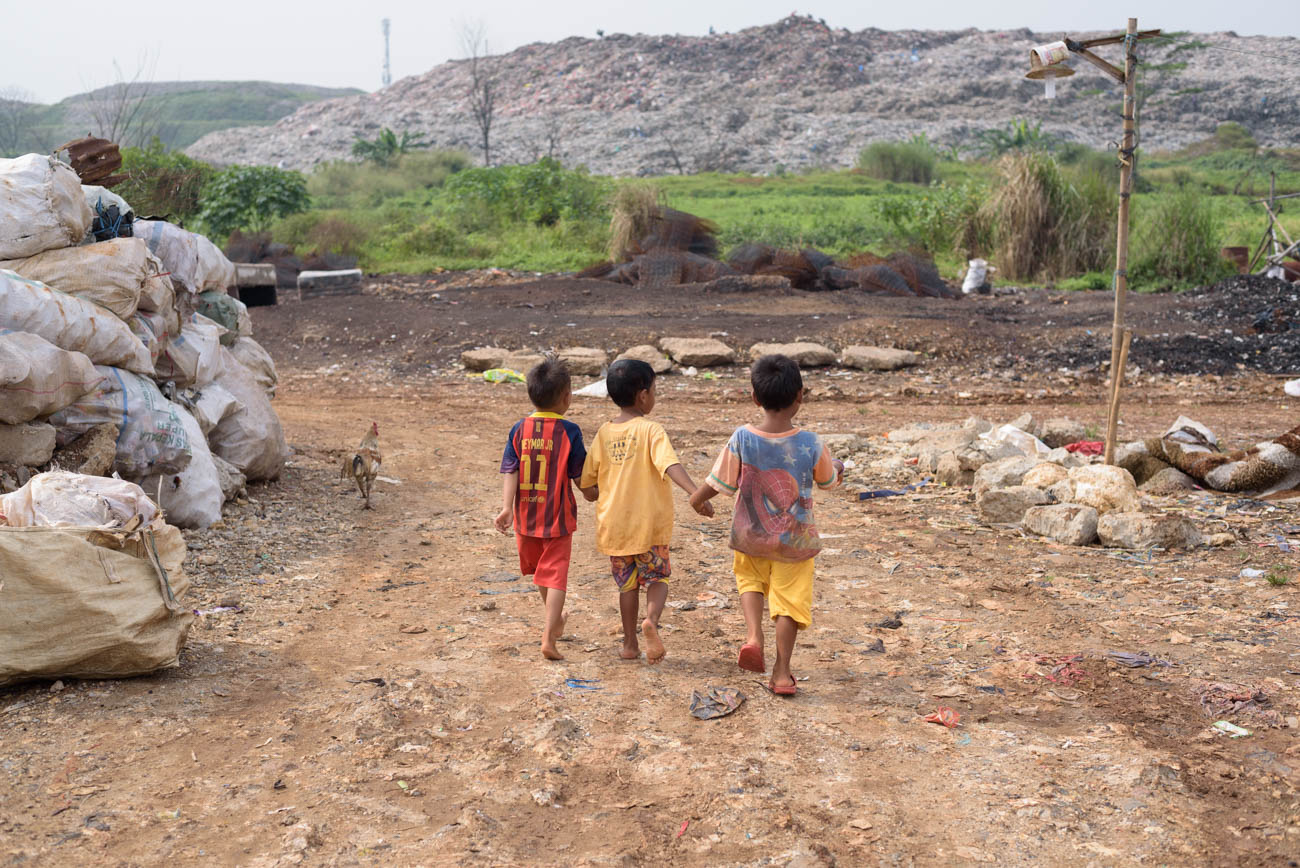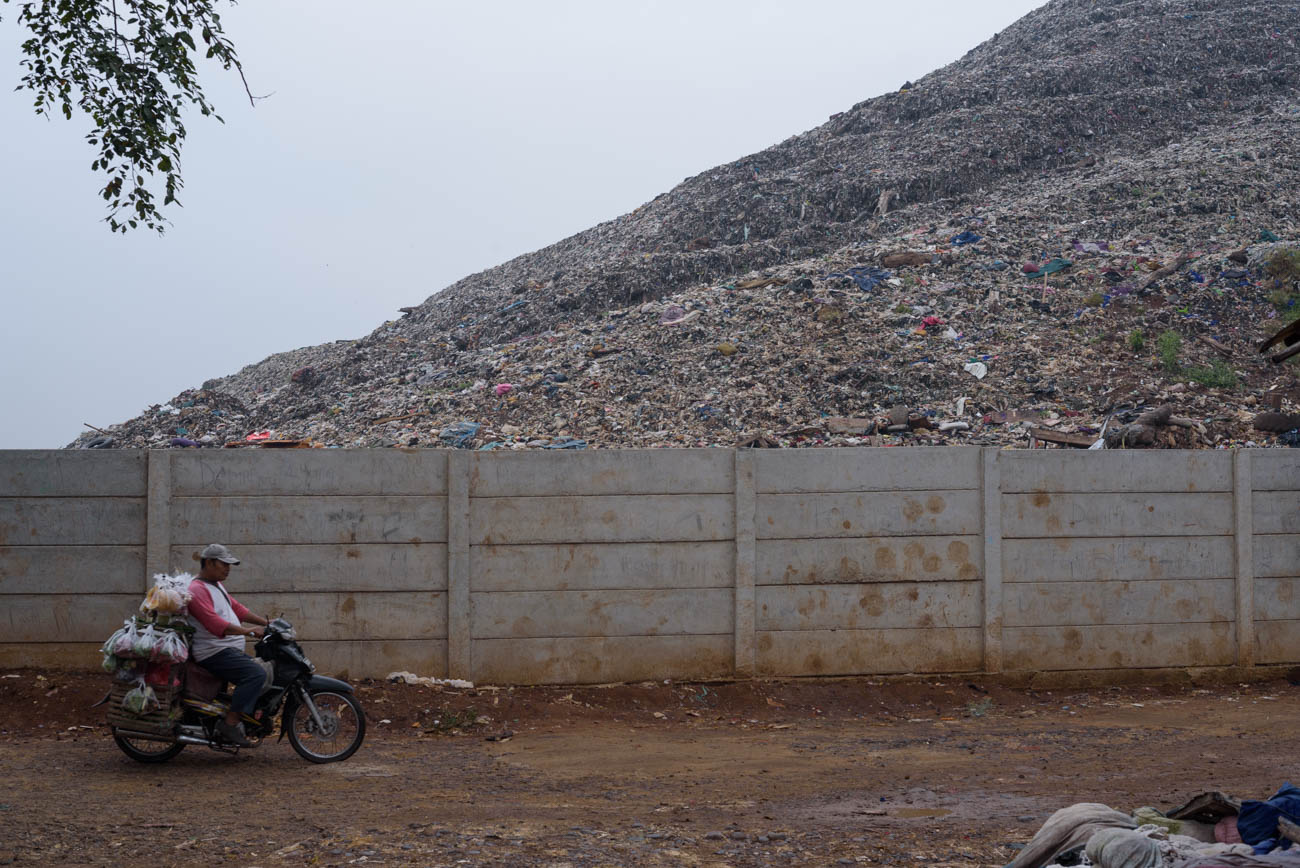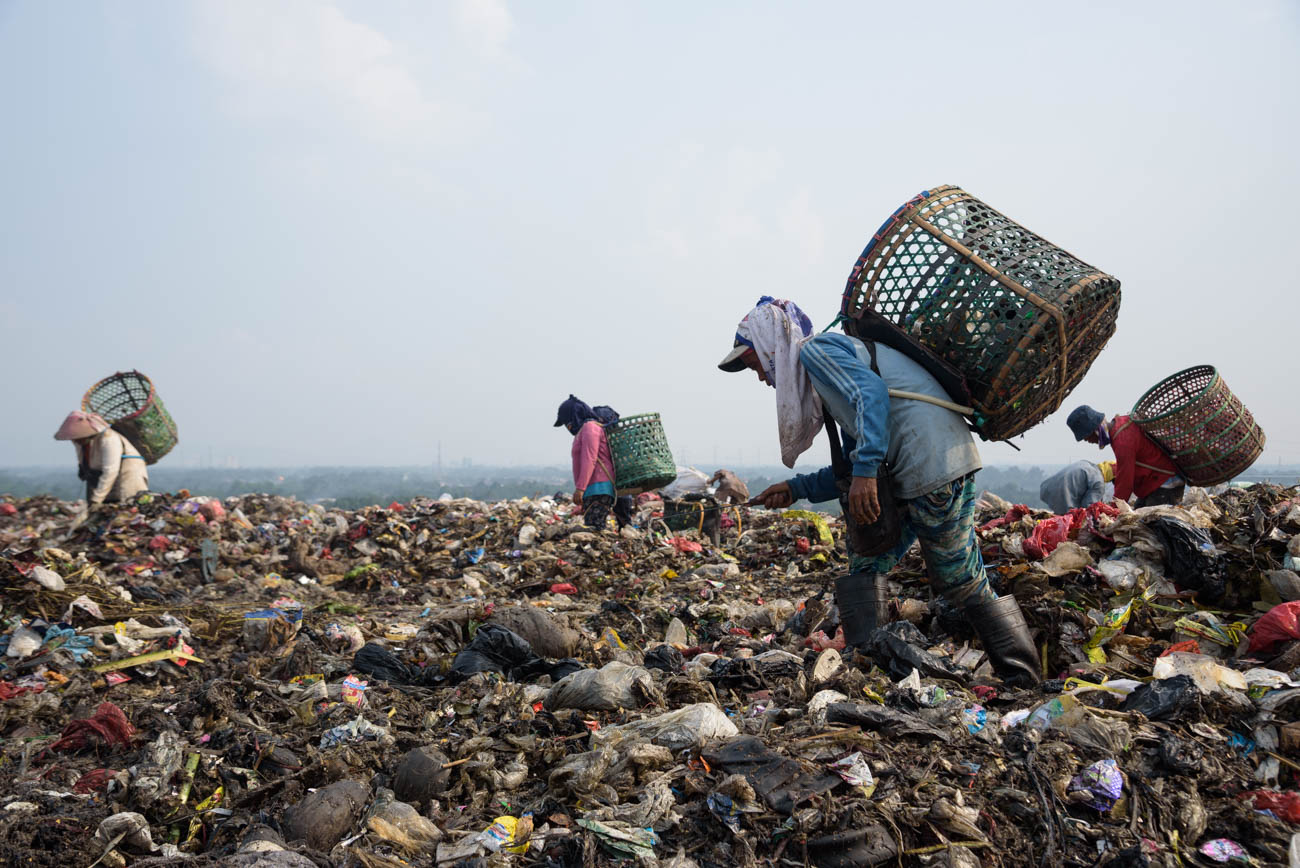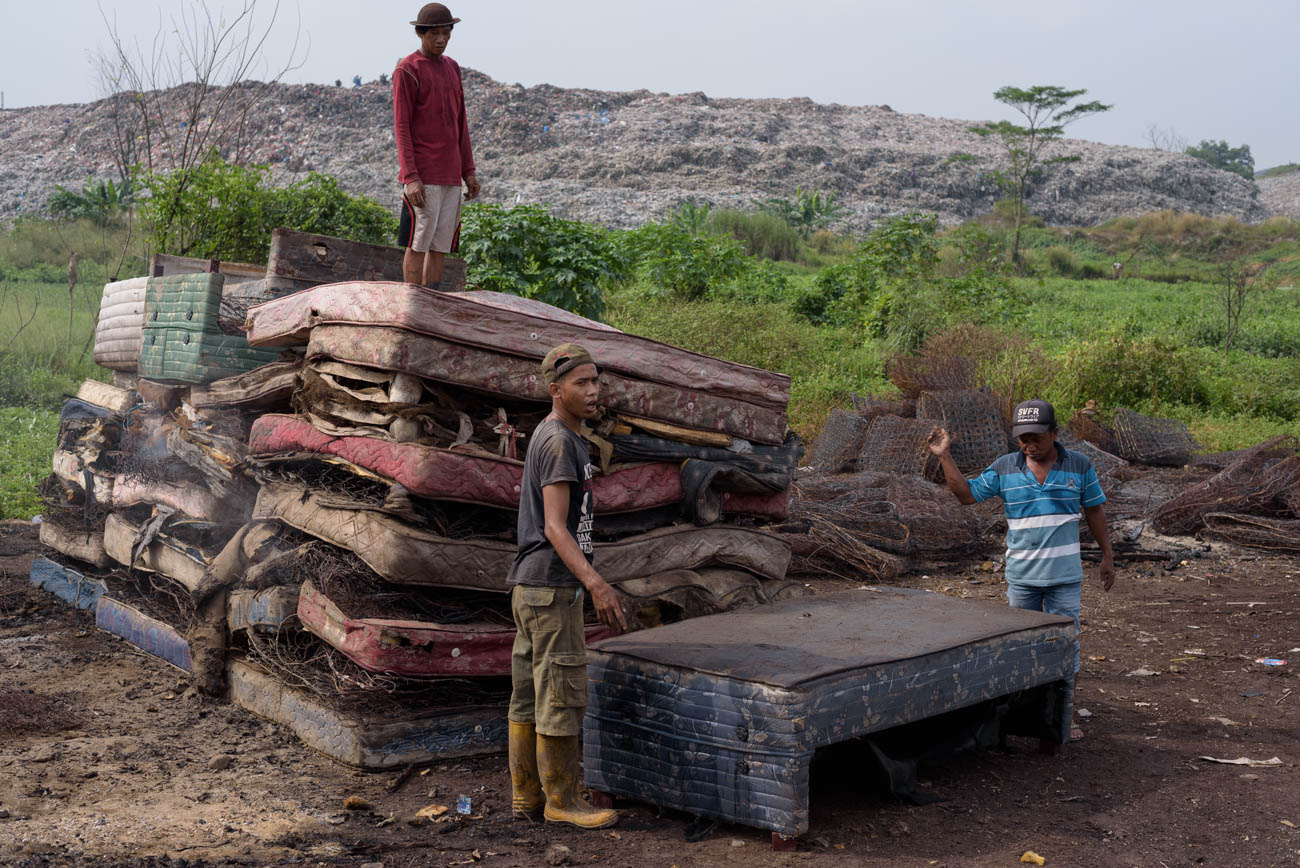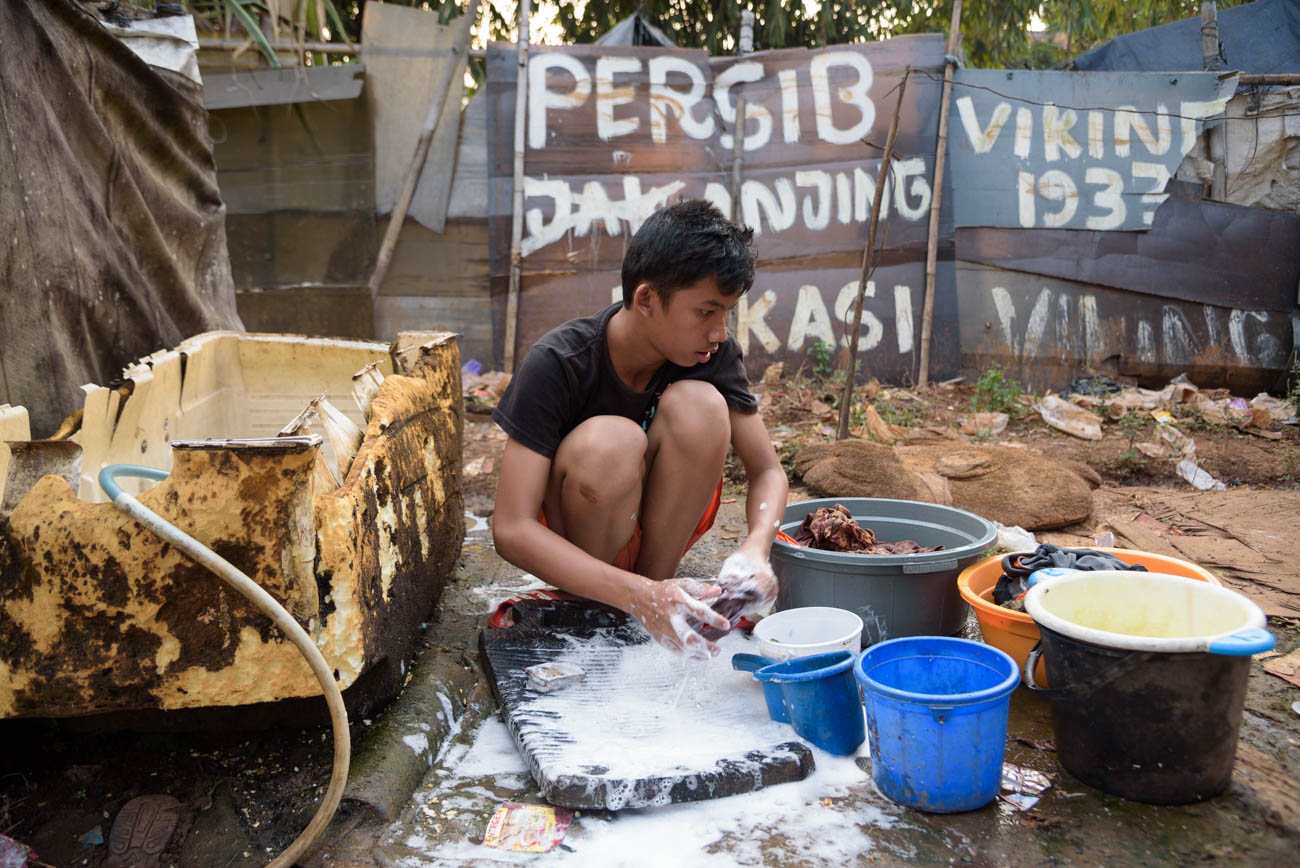The Kingdom
The Kingdom
Even before you enter Bantar Gebang, Southeast Asia’s largest landfill, you can start to smell it. The two-lane road leading from the metropolises of Jakarta and Bekasi is frequently clogged with garbage trucks, their stench seeming to exacerbate the tropical heat. As soon as you go through the front gate you see the mountains of trash looming above. Running alongside is the black runoff water collecting in culverts. To many, this place is revolting, and for many, vomiting upon arrival is not out of the question. But for roughly 3000 families, this is home. They make a living off the trash, being involved somewhere in the process of collecting and selling off recyclable materials. People here hail from all corners of Indonesia, flocking here in search of steady work and the ability to better provide for their families. As long as there is trash, there is work available, and there is always trash. Upwards of 6000 tonnes of trash are deposited in Bantar Gebang every day bringing not only plastics and metals to be recycled, but food, toys, and clothing. By many accounts, life here is not glamorous, but for the people living here, the trash mountains of Bantar have provided better for them, for them, this is a kingdom.
When I started taking photos at Bantar Gebang, I was aiming to capture what life was like living there. In doing so, I became aware of how these lives exist so closely intertwined with the environmental crises that are currently gripping the world. It’s easy to point to the trash and label it as an issue by itself. But trash is such a big part of the modern world that it carries with it an ecosystem that has come to survive off its existence. Simply doing away with generated trash will bring along with it economic and social issues that we may not often think of when looking at the grand environmental issues being faced. Trash is not just an issue for the consumer but also for those making a living from it.
